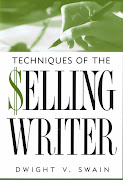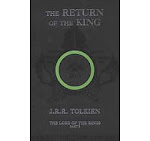Current Reading: Best New Fantasy, ed. by Sean WallaceInspirational Quote: "To understand all is to forgive all." -- Various, possibly Buddah or a French Proverb.Only crazy people confuse reality with written fiction. There are lots of reasons why this is so, but they all boil down to the fact that written fiction presents a world idealized and abstracted and without all the contradictions and surprises that make up normal human existence.
In reality we never know the whole story.
An example:
a Toronto woman is held in Kenya despite numerous protestations and reams of evidence that she is a Canadian citizen. It's a horror story that has a happy ending, or at least an ending in which the mistake was cleared up although the victim is certainly not happy. One wonders what prompted representatives from the Canadian High Commission to look at all that evidence and deny the identity of the woman in front of them.
They have yet to be publicly identified. They have yet to tell their story, but I don't think what people tell us is all of the truth anyway. I don't think people can know all of their own truth. People tell us what they think happened, a thought shaped as much by their own perceptions, fears and beliefs as by the actual facts. If I've uncovered any truth about human behavior is this: all of us act the way we do for one reason -- it seems like a good idea at the time. Whoever those officials were, they had what they believed to be sufficient reason, within their own minds, to doubt Suaad Hagi Mohamud was who she said.
They were wrong.
Why they concluded what they did is something we'll never really know. We'll never understand. The mistake seems pretty obvious to us, so much so that one wonders if there weren't some nefarous motive behind this case of misidentity. But it only seems obvious because we can't be there, in their minds, following their trains of thought, knowing what they knew or believed they knew.
Written fiction gives us a world of understandable human beings. We can enter their minds, follow their thoughts, understand why they reach the conclusions they do about the world around them. We can understand fictional characters in ways we simply can't understand real people, not even those with whom we share a life. Between the covers of a book, we are allowed to understand.
In the real world, Ms. Mohamud is taking steps to obtain what she believes is justice, or as much justice as is allowable by law. We'll never know if the result is truly just, or if it's only what the people who make the decision on her suit believe to be just.
We'll never know the whole story.



